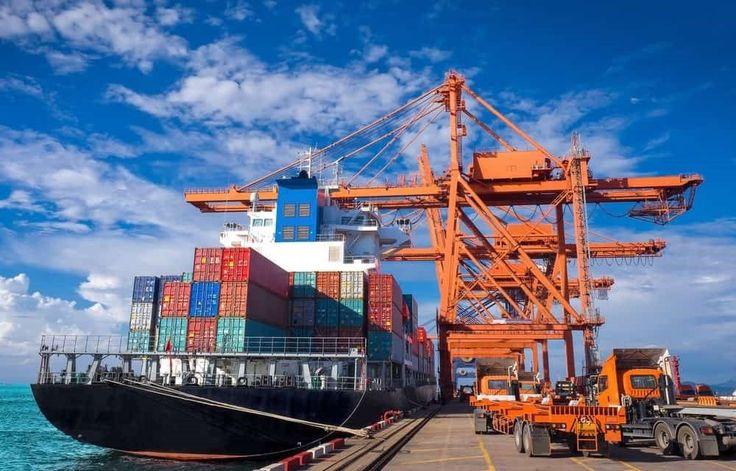In today’s fast-paced and highly competitive business environment, efficient logistics operations are no longer a luxury — they’re a necessity. One of the most powerful enablers of operational efficiency is Fleet Logistics Support. Whether you're managing a supply chain, overseeing transportation systems, or running a field services enterprise, understanding how fleet logistics support can improve operations is key to gaining a strategic advantage.
What is Fleet Logistics Support?
Fleet Logistics Support refers to the comprehensive system of services, technologies, and strategies used to manage a company’s fleet of vehicles — including transportation scheduling, route optimization, vehicle maintenance, driver management, fuel tracking, and compliance monitoring. This support framework is essential for businesses with large-scale delivery, transportation, or mobile service operations.
From e-commerce and retail to healthcare and defense, industries worldwide are recognizing the value of logistics support as a driver of performance and cost-efficiency.
How Can Fleet Logistics Support Improve Operations?
1. Enhancing Efficiency Through Real-Time Tracking
Modern fleet logistics systems use GPS and IoT-based tracking solutions to monitor vehicles in real-time. This allows businesses to:
-
Reduce idle times
-
Minimize delays caused by traffic or unexpected route closures
-
Provide customers with accurate ETAs
-
Re-route vehicles dynamically for better time and fuel optimization
This level of visibility significantly boosts productivity and customer satisfaction.
2. Cost Reduction Through Optimization
Fleet logistics support can cut costs in multiple ways:
-
Fuel Management: Monitoring driving behavior and vehicle routes reduces fuel wastage.
-
Maintenance Alerts: Predictive maintenance ensures vehicles are serviced before major breakdowns occur, saving repair costs and downtime.
-
Utilization Metrics: Analyzing vehicle usage data helps optimize fleet size, reducing underused assets.
Overall, smarter logistics lead to leaner, more cost-effective operations.
3. Improving Decision-Making with Data Analytics
Big data and analytics tools embedded in fleet logistics platforms provide actionable insights. These include:
-
Route performance statistics
-
Vehicle wear-and-tear trends
-
Driver efficiency metrics
-
Delivery success rates
These insights empower managers to make better strategic decisions, allocate resources effectively, and set realistic KPIs.
4. Boosting Safety and Compliance
Compliance with safety regulations and transport laws is essential, especially in sectors like food, pharmaceuticals, and defense. Fleet logistics support helps businesses:
-
Maintain digital logs and inspection records
-
Monitor driver behavior (speeding, harsh braking, etc.)
-
Send automated alerts for license renewals and certifications
-
Adhere to hours-of-service regulations for drivers
With increased automation and compliance checks, businesses reduce legal risks and improve safety.
5. Scalability and Adaptability
One of the core benefits of fleet logistics support is scalability. As your business grows, your logistics system must adapt. Fleet logistics systems allow for:
-
Integration with new locations or distribution centers
-
Expansion to new regions with dynamic route planning
-
Addition of new vehicle types (EVs, hybrid fleets) without disrupting operations
Such adaptability is critical in volatile or fast-growing markets.
6. Environmental Sustainability
Today’s consumers and regulators are focused on sustainability. Fleet logistics support contributes to eco-friendly operations by:
-
Reducing fuel consumption and emissions through smarter routing
-
Supporting hybrid and electric vehicle integrations
-
Encouraging eco-driving practices among drivers
This doesn’t just save money — it also enhances your brand’s reputation and compliance with environmental policies.
7. Enhanced Customer Experience
Customer satisfaction is directly linked to timely deliveries and communication. Fleet logistics support enhances the customer journey through:
-
Real-time order tracking
-
SMS/Email notifications for deliveries
-
Fewer reschedules due to smarter routing
-
Reduced missed deliveries and faster turnaround times
In the age of Amazon Prime and same-day deliveries, businesses can’t afford to compromise on service.
The Future of Fleet Logistics Support: What to Expect
Looking forward, fleet logistics is evolving with advanced technologies like:
-
AI and Machine Learning: For predictive analytics and automated decision-making
-
Blockchain: For secure, transparent logistics records and contracts
-
Electric and Autonomous Vehicles: Redefining fleet structures and energy models
-
Cloud-Based Fleet Management Systems: For remote access and centralized control
Companies investing early in these tools will set themselves apart in terms of resilience, innovation, and speed.
Final Thoughts
Fleet Logistics Support is not merely a back-end function it’s a frontline driver of operational success. It improves cost control, efficiency, safety, and customer satisfaction while paving the way for sustainable, scalable growth. Whether you’re a small local business or a global enterprise, leveraging fleet logistics effectively can give you the edge you need in 2025 and beyond.

